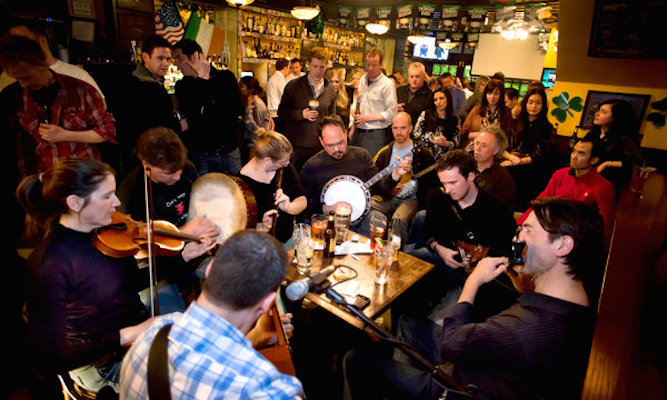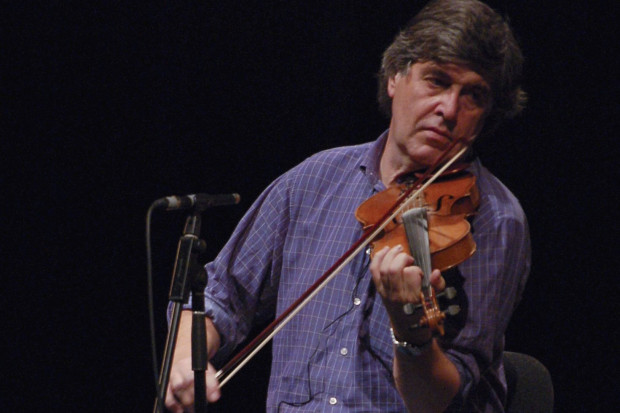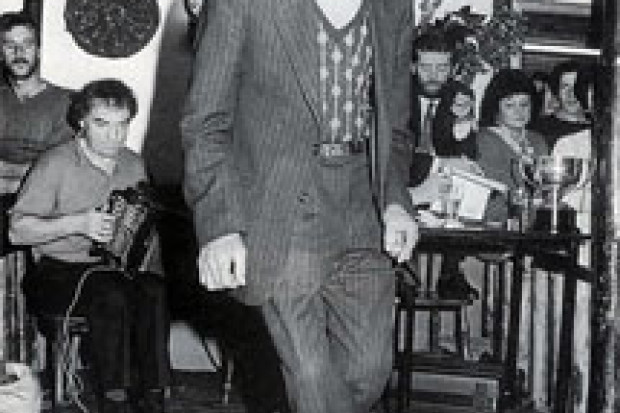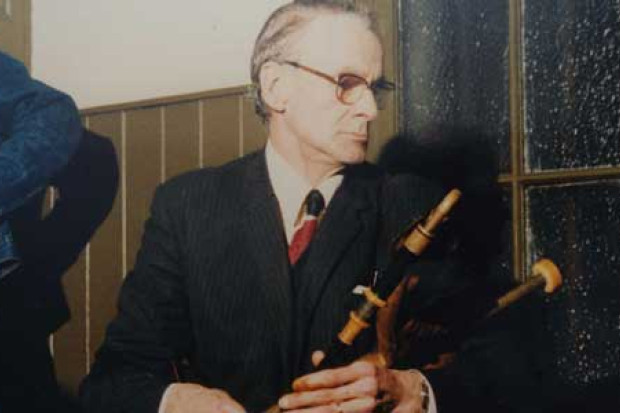
What We Won't Tell the Visitors this Summer
Every now and then, if you are a traditional musician, you will get a call from a friend, a friend of a friend, or a relation, and they will tell you they have some people from abroad staying with them, and could you recommend a place where they could go and hear some Irish music? You picture the hosts that evening, who are normally only vaguely interested in the music you play, beaming, proud as punch as their visitors are entertained by Ireland’s traditional music. The visitors will be thrilled, glad to have made this connection with this music and Irish people, and they leave the premises impressed, grateful, thinking of the Irish as alive with culture and imbued with a natural musical talent.
Traditional musicians in Ireland, in every city and county, perform this service daily, and it doesn’t end there. They are involved in possibly thousands of concerts and gigs around Ireland yearly, bringing music to every half-decent venue and event. Then there are the festivals, fairs, summer schools and community events, all enlivened by, or wholly dependent upon, the benevolent act of traditional musicians playing for others.
They do all this because they can, because they take the rough with the smooth, because they see the potential everywhere for music, because they want people to love this music the way they do. They adapt like chameleons to whatever is thrown in their path. They bend and shape their music every which way. It can be a precarious existence at times, punctuated by only mediocre pay.
They shrug at the thought that there might be people in the world who think they are a wonder, a model of a cultural and artistic triumph over an ephemeral world. They don’t see their success en masse as belonging to, or as the result of, any one individual. They’re just pleased that it’s all working out the way it is. They know that their numbers are huge, that they are strong as a community, and they know that in traditional music they have lifelong friends. All are aware of the bond that playing traditional music creates between them; when one player meets another there is an instant camaraderie. No matter who they are, how high up or low down in the world, they can greet each other with ‘Are you playing any sessions lately?’, and the bond comes alive. Every traditional musician will have heard of almost everyone else, and there’s always excitement, controversy and an openness to new people and new music. Someone has released a new CD, someone played with one of the greats, a new young musician is creating a stir, it goes on and on. It is self perpetuating, it is growing all the time.
Traditional musicians are a national treasure and have given an incalculable amount to this country. They don’t ask for much, in fact they rarely ask for anything at all. They are not a fierce campaigning body, they don’t make demands on the government, they don’t go on strike, they don’t refuse anybody entrance into their community. They simply travel Ireland and the world - literally thousands of them - and make music. They are infinitely more important, musically, to this country than, for example, U2 or Riverdance, because they inject real life into every nook and cranny. They make Ireland unique.
But Ireland can’t help kicking them in the teeth. What we won’t be telling the visitors from abroad this summer is that Ireland, as a country, is incapable of openly embracing Irish traditional music. It builds walls around it, it dresses it up, it keeps it at arms length or under the table. It will use it, package it and sell it, but it’s a difficult relationship. It is not sure where it stands with it. In its most raw state traditional music makes Ireland feel uncomfortable. The country is content for the wider world to love it, but it can’t, and it’s not sure why.
So we won’t tell our visitors this summer about Aosdána, for example, a state-sponsored academy of 200 artists, set up in 1983 by the Irish Government to honour Ireland’s finest and, depending on their circumstances, to support them financially. For they don’t let traditional musicians in. You have to have ‘created’ a sizeable body of work, i.e. written books, painted pictures, made films, written pieces of (contemporary classical) music. Traditional musicians do not get in because they are ‘interpretative artists’, that is, they just play.
Where did this model of an academy of artists come from? Whose definitions are these? Originally, the prime mover behind Aosdána was the poet and writer Anthony Cronin, who was Cultural and Artistic Adviser to the Taoiseach, Charles Haughey, between 1980 and 1983. Is it not despicable that an academy would be constituted that actively keeps Irish traditional musicians out? Such was the founders’ myopia that they could not imagine beginning with a definition of art that included Irish people playing indigenous Irish music. And this was thirty years into the folk revival - they could hardly have pleaded ignorance of its existence.
How dare this country do that to its own traditional musicians, and why are today’s members of Aosdána not outraged at this, embarrassed by it even? It seems that somewhere in the depths of the Irish pysche there is an auto-response that says writing novels and books of poetry, and composing contemporary classical music, is more precious and more worthy of admiration than any indigenous genre that the Irish people could come up with themselves over several hundred years. Because that is what Irish traditional music is: it is an astonishing achievement by the Irish people through history. Obviously, Ireland would see itself as an oddball if it praised itself. It sees aspects of the country such as traditional music as ‘quirks of history’, detours from the proper path. There have even been attempts to get traditional musicians in as ‘composers’ because they have written tunes. What could be more of an insult than trying to get them in by the back door?
And yet, traditional musicians are generally ambivalent about this state of affairs. They have an antipathy towards conflict. They have their heads down in the pubs where they play, they sense and hear the lunacy of their society all around them. They open their eyes when they’ve finished a set of tunes, when they’ve played their hearts out, and they realise that almost everybody is too drunk or too consumed with themselves to listen. Do they complain? No, there are tunes to be played, there’s music to be made, and next week might be better. When you have your priorities lines up in such a way things are quite simple and can be kept so. But how patient will the present generation of traditional musicians be with this stagnant society, so obviously outdated and conservative in its views of culture and art. There is too much talent in this generation, too much natural ability, too much success already attained, too many walls and boundaries already broken down for them to stop at the door of Aosdána. Here’s hoping they’ll be the ones to kick it down.
Published on 1 July 2002
Toner Quinn is Editor of the Journal of Music. His new book, What Ireland Can Teach the World About Music, is available here. Toner will be giving a lecture exploring some of the ideas in the book on Saturday 11 May 2024 at 3pm at Farmleigh House in Dublin. For booking, visit https://bit.ly/3x2yCL8.












